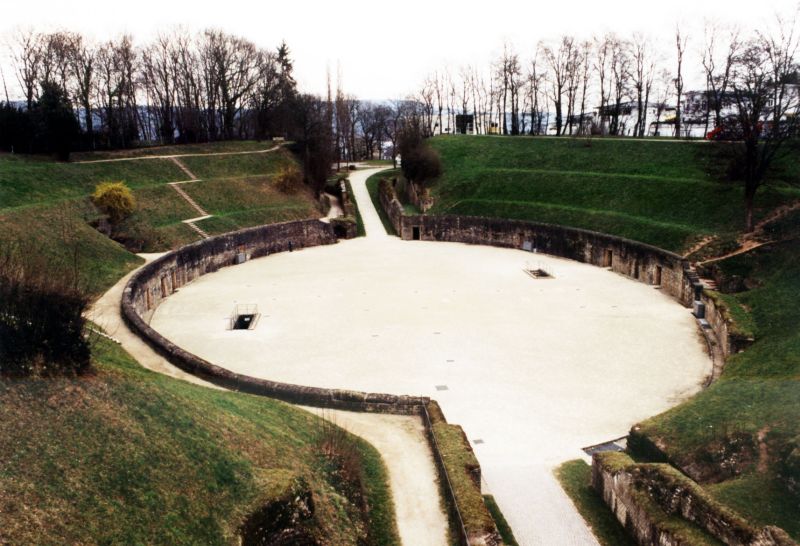Merogais on:
[Wikipedia]
[Google]
[Amazon]
Merogais ( la, Merogaisus, french: Ragaise) was an early  In 306 he and Ascaric led a Frankish raid across the
In 306 he and Ascaric led a Frankish raid across the
Frankish king
The Franks, Germanic-speaking peoples that invaded the Western Roman Empire in the 5th century, were first led by individuals called dukes and reguli. The earliest group of Franks that rose to prominence was the Salian Merovingians, who con ...
, who, along with his co-ruler Ascaric, is the earliest Frankish ruler known. He was an enemy of the Roman Empire
The Roman Empire ( la, Imperium Romanum ; grc-gre, Βασιλεία τῶν Ῥωμαίων, Basileía tôn Rhōmaíōn) was the post- Republican period of ancient Rome. As a polity, it included large territorial holdings around the Mediter ...
. Merogais is mentioned in the ''Panegyrici latini
' or ''Twelve Latin Panegyrics'' is the conventional title of a collection of twelve ancient Roman and late antique prose panegyric orations written in Latin.
The authors of most of the speeches in the collection are anonymous, but appear to hav ...
'' (anonymous VI and VII) and by Eutropius and Eumenius
Eumenius (born c. 260 CE at the latest, more probably between 230 and 240 CE), was one of the Ancient Roman panegyrists and author of a speech transmitted in the collection of the ''Panegyrici Latini'' (Pan. Lat. IX).
Life
Eumenius was born in G ...
. The very existence of Merogais depends on the manuscript reading of Johann Kaspar Zeuss
Johann Kaspar Zeuss (or ''Zeu ß'', 22 July 1806 – 10 November 1856) was a German historian and founder of Celtic philology. He is credited with demonstrating that the Celtic languages belong to the Indo-European group.
Life
Zeuss was born in ...
. The sentence which names the two kings begins with ''Asacari'' or ''Assaccari'' in all manuscripts, but it ends with the corrupt forms ''cinere gaisique'', ''cumero geasique'', ''cymero craisique'', and ''cymero caisique''. Zeuss reads those sentences as ending respectively ''cum Neregaisique'', ''cum Merogeasique'', ''cum Merocraisique'', and ''cum Merocaisique'', each meaning as "and with Merogais".
 In 306 he and Ascaric led a Frankish raid across the
In 306 he and Ascaric led a Frankish raid across the Rhine
), Surselva, Graubünden, Switzerland
, source1_coordinates=
, source1_elevation =
, source2 = Rein Posteriur/Hinterrhein
, source2_location = Paradies Glacier, Graubünden, Switzerland
, source2_coordinates=
, so ...
into southern Gaul
Gaul ( la, Gallia) was a region of Western Europe first described by the Romans. It was inhabited by Celtic and Aquitani tribes, encompassing present-day France, Belgium, Luxembourg, most of Switzerland, parts of Northern Italy (only during ...
while Constantine the Great
Constantine I ( , ; la, Flavius Valerius Constantinus, ; ; 27 February 22 May 337), also known as Constantine the Great, was Roman emperor from AD 306 to 337, the first one to convert to Christianity. Born in Naissus, Dacia Mediterran ...
was campaigning against the Picts
The Picts were a group of peoples who lived in what is now northern and eastern Scotland (north of the Firth of Forth) during Late Antiquity and the Early Middle Ages. Where they lived and what their culture was like can be inferred from e ...
in Britannia
Britannia () is the national personification of Britain as a helmeted female warrior holding a trident and shield. An image first used in classical antiquity, the Latin ''Britannia'' was the name variously applied to the British Isles, Great ...
. Apparently the two had made a previous agreement with Rome not to cross the border, since Constantine sought to punish them as traitors upon his return. The two chieftains were defeated, captured, and executed "for their past crimes", an act which "bound with fear the slippery loyalty of the whole race," according to one of the emperor's anonymous panegyrists. The execution took place in one of the chief cities of Gaul, probably Trier
Trier ( , ; lb, Tréier ), formerly known in English as Trèves ( ;) and Triers (see also names in other languages), is a city on the banks of the Moselle in Germany. It lies in a valley between low vine-covered hills of red sandstone in the ...
, and the two Franks and their followers were torn apart by animals in the amphitheatre
An amphitheatre (British English) or amphitheater (American English; both ) is an open-air venue used for entertainment, performances, and sports. The term derives from the ancient Greek ('), from ('), meaning "on both sides" or "around" and ...
before a large crowd. Their defeat was followed by the subjection of the Bructeri
The Bructeri (from Latin; Greek: Βρούκτεροι, ''Broukteroi'', or Βουσάκτεροι, ''Bousakteroi''; Old English: ''Boruhtware'') were a Germanic tribe*
*
in Roman imperial times, located in northwestern Germany, in present-day ...
.
References
*Howorth, Henry H. (1884). "The Ethnology of Germany: Part VI. The Varini, Varangians, and Franks, Section II". ''The Journal of the Anthropological Institute of Great Britain and Ireland'', 13:213–237. * Landriot, Jean-François-Anne, and Rochet, Benoît Joseph (1854). ''Traduction des discours d'Eumène: accompagnée du texte''. Autun: Michel Dejussieu et Louis Villedry. *Long, Jacqueline (1996). ''Claudian's '' In Eutropium'': Or, How, When, and Why to Slander a Eunuch''. Chapel Hill: UNC Press. {{ISBN, 0-8078-2263-9. 306 deaths Frankish kings Frankish warriors 4th-century Frankish people 4th-century monarchs in Europe Year of birth unknown